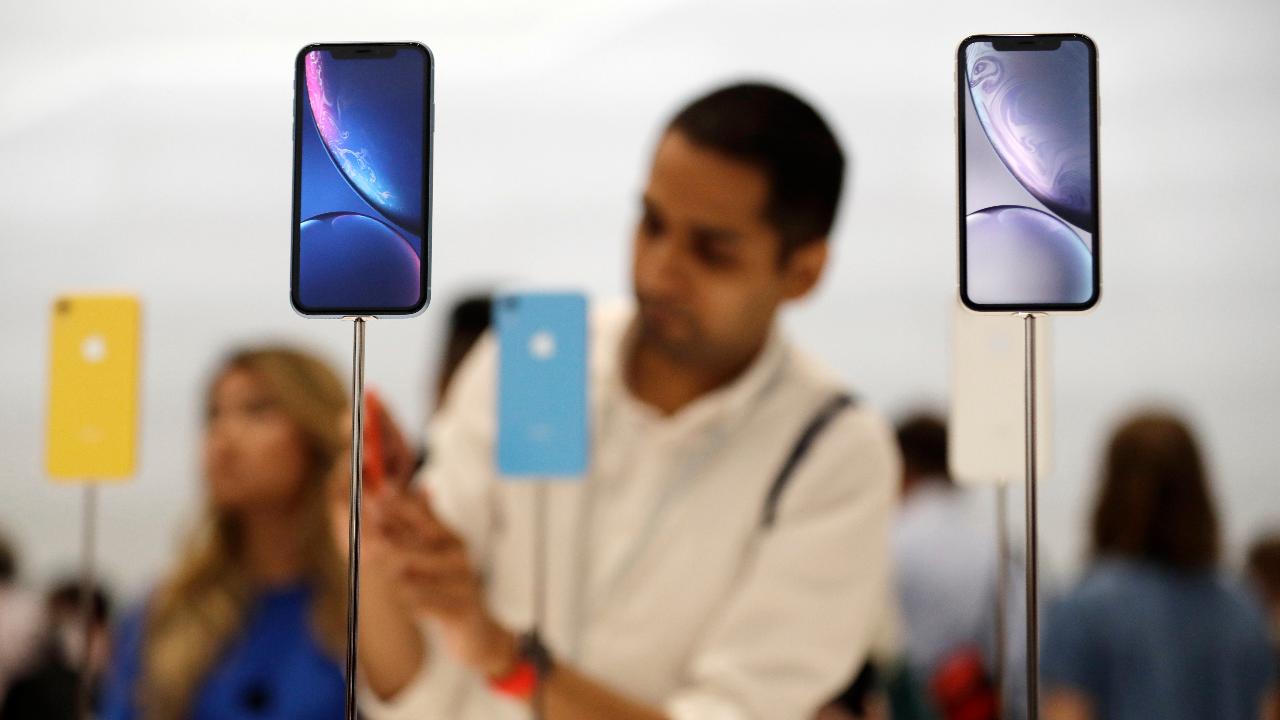Apple's stock is having its worst month of the year. Here's why
Since peaking at a year-high in early May, Apple shares have shed close to 14 percent of those gains – largely because of renewed U.S.-China trade tensions.
On Monday, shares of the iPhone-maker closed at $183.09, far from the 2019 high of $211.75, after HSBC released a note to investors in which they reduced their outlook for Apple, citing renewed China economic growth risks and tariffs. Apple shares climbed slightly higher on Tuesday.
Trump's 25 percent tariff hike on Chinese goods could pose two threats to Apple, HSBC global head of consumer and retail research Erwan Rambourg wrote: first, Apple may increase the price of its iPhones if tariffs affect its products which could hurt demand.
“Apple could increase prices, with dire consequences on demand given the evidence of price elasticity (late 2018 iPhone launches have already been seen as too pricey by consumers) and lengthening smartphone upgrade cycle,” Rambourg said in the note.
And second, consumers in the Chinese market may shift to smartphone substitutes produced by competitors like Huawei or Xiaomi, favoring local brands over functionality. China accounts for about 17 percent of Apple sales and profits.
| Ticker | Security | Last | Change | Change % |
|---|---|---|---|---|
| AAPL | APPLE INC. | 260.58 | -3.77 | -1.43% |
Rambourg downgraded the outlook for Apple to $174 per share and if Apple products faced tariffs in both China and the U.S. -- and demand dropped further -- shares could slide somewhere between $11 and $30.
Although a U.S.-China trade deal appeared imminent a few weeks ago, tensions erupted when President Trump said in the beginning of May that the U.S. would follow through by hiking tariffs on $200 billion of Chinese goods to 25 percent from 10 percent. He also threatened to slap an additional 25 percent tariff on $325 billion worth of goods. In retaliation, Beijing said it would impose another round of tariffs on $60 billion worth of U.S. goods.
“While cell phones are likely to see imposition of 25 percent tariffs (up from 10 percent), it remains to be seen if Apple works/succeeds in getting an exemption around this, given that Apple’s main supply base is in China,” Rambourg said.
He also noted that the Chinese have soured on Apple, given the tensions between the U.S. and Huawei, particularly after Trump passed an executive order intended to block Huawei from accessing U.S. networks or technology. The latest developments, he said, appear to have prompted employees to purchase domestic mobile brands instead of Apple.
“We believe an escalation/elongation of the trade tension will likely have an impact on how Chinese consumers perceive US branded products, chiefly iPhone and given that China plays a big role in terms of products and services revenue for Apple, this remains a key risk,” he wrote.
CLICK HERE TO GET THE FOX BUSINESS APP
And even with Apple’s resolution with Qualcomm, a 5G-driven upgrade cycle remains uncertain, Rambourg said. The two companies were previously engaged in a lengthy court battle over chip royalties, but reached an agreement in April to drop all litigation.




















